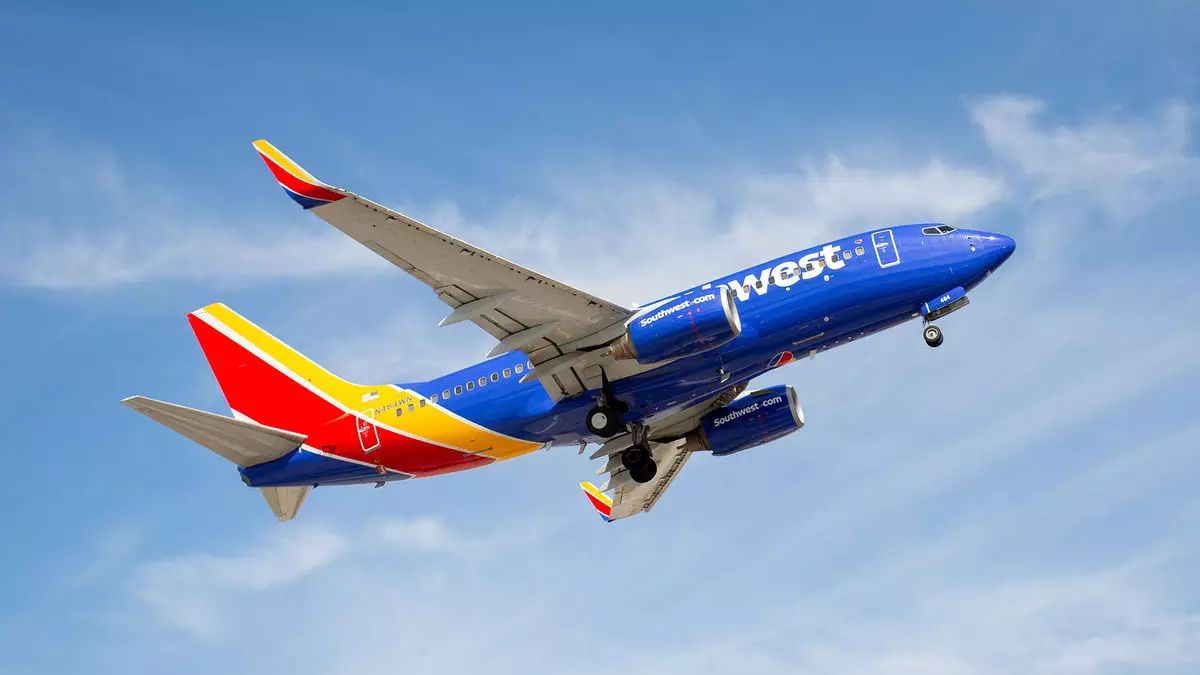In a significant corporate showdown, Elliott Investment Management has thrust Southwest Airlines into the spotlight with its recent petition for a shareholder proxy vote scheduled for December 10. Holding an 11% stake in Southwest, Elliott is pressing for changes at the board level that, according to the airline, could create substantial disruption within the organization. This move, which seeks to install a new slate of eight board members while simultaneously ejecting eight existing members—including Chairman Gary Kelly, who plans to resign in May—reflects a clash of interests that has deep implications for the airline’s future.
Historically, proxy battles symbolize a power struggle, often spotlighting the diverging priorities of management versus the shareholders. In this case, Elliott’s request is being interpreted not just as a strategic business maneuver but as a calculated attempt to seize control. The airline’s management has reacted strongly to this agitation, asserting that the demands posed by Elliott amount to unnecessary and inappropriate interference in Southwest’s crucial restructuring process, particularly as the airline approaches one of its busiest travel seasons.
With the cursor intent on change, Elliott’s composition for its proposed board includes notable figures: former CEOs of leading airlines and a high-ranking executive from a major hotel group. This mix suggests a strategic pivot towards nurturing industry expertise, potentially channeling their previous successes into revitalizing Southwest Airlines. Both Robert Milton and David Cush bring with them a wealth of knowledge, along with a demonstrated capacity for navigating the complexities of the airline industry.
The implications of these changes, however, are profound. If Elliott’s proxy is approved, the likelihood of current CEO Bob Jordan’s departure increases significantly. The uncompromising nature of Elliott’s demands indicates a desire for dramatic overhaul—considering the airline’s recent challenges, including a steep decline in profit margins over the past several years. As the financial landscape becomes increasingly competitive, the question arises: can Southwest’s current leadership respond to these challenges effectively, or is a radical change necessary?
While Elliott’s critiques highlight the declining profit margins at Southwest, it’s essential to examine Southwest’s strategic response to these pressures. The airline is currently undergoing a transformation aimed at reinvigorating its financial health, supported by an optimistic revenue projection of $4 billion by 2027. By incorporating new initiatives like assigned seating and additional legroom, the carrier hopes to provide a more market-aligned service offering that resonates well with contemporary travelers.
Moreover, Southwest’s broader strategy of enhancing fleet utilization and reducing turnaround times demonstrates a commitment to operational efficiency. Yet, can these internal initiatives truly placate an activist investor known for pushing aggressive reforms? As Elliott critiques management’s performance, it simultaneously acknowledges the underlying strengths of Southwest: a robust brand, a strong cash position, and a comprehensive network. Still, these attributes alone may not suffice to turn the tide against external pressures.
In the face of Elliott’s aggressive tactics, Southwest Airlines finds itself at a critical junction. The risks posed by the potential changes encapsulated in the proxy vote could forge a new path for the airline—one that could either restore its profitability or plunge it deeper into turmoil. Ultimately, constructing a clear vision that balances shareholder demands with current operational capacities will be pivotal.
As the date for the proxy vote looms closer, all eyes will be on how the board of Southwest navigates these turbulent waters and whether it can assuage a class of shareholders increasingly intolerant of underperformance. The outcome could redefine not just Southwest’s leadership but also its standing in a fiercely competitive marketplace—a true test of its resilience in an industry marked by volatility.

